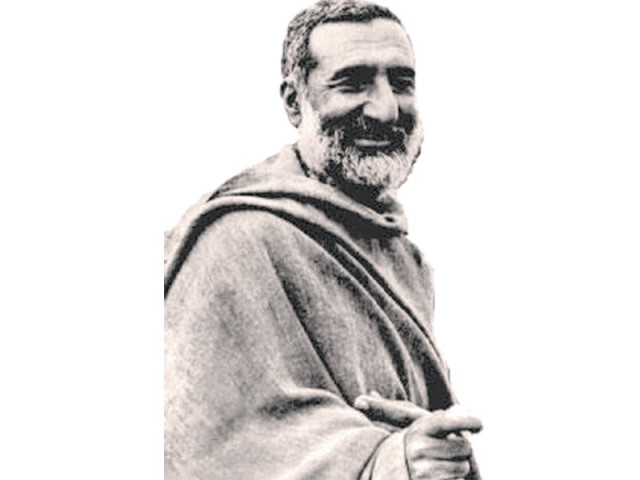Tracing ANP’s trajectory: From nationalist to pro-establishment?
Former leaders claim party’s stance has changed over the years.

(Non-violence is) a power
and has an army just like violence.
But its weapon is preaching while the
weapon of violence is the gun, says Bacha Khan
The two-time president of ANP was forced to resign from the party. He said party leaders wanted to use his initiative to release Azam Khan Hoti from the National Accountability Bureau’s custody, but Khattak resisted seeing it as a party violation.
Much has changed since then. Following the September 11, 2001 attacks on the United States, ANP supported military operations against the Taliban in tribal areas and Malakand division. ANP detractors proclaimed the party had parted ways from its nationalist and secular outlook, and had jumped on the establishment’s bandwagon.

This perception became so pervasive that poet and writer of Khudai Khidmatgar fame Saadullah Jan Burq accused the party’s leadership of going against its original stance. Burq’s criticism was so determined he authored a book titled ‘From Khudai khidmatgari to military.’
He contended that while Bacha Khan and Abdul Wali Khan were great ideological personalities, ideologies change with people and this phenomenon is inevitable.
“Ideology is beyond winning or losing and should be adhered to at all costs,” Burq said, adding the ANP leadership wanted power at the cost of what it stood for, and that ANP’s pro-establishment policies were opportunistic.

Farid Tofan, a former leader who was later expelled from the party, traces the roots of ANP’s changing policy to Asfandyar Wali Khan’s appointment as the party’s president. “Previously ANP’s policy was secular and hinged on separation of religion and politics.”
He said after Asfandyar took over as president, he arranged a conference at Bacha Khan Markaz, which was attended by Jamiat Ulema-e-Islam-Fazl (JUI-F) and Jamaat-e-Islami (JI) leaders among others. There Asfandyar declared the union of the mosque and hujra.
“ANP is no longer a nationalist party, which is why Aftab Sherpao has formed a nationalist party to fill this vacuum,” said Tofan. “It is no longer an anti-establishment party and those people who called the army a ‘Punjabi Army’ are now being dictated by generals on politicking.”
Analyst Khadim Hussain believes otherwise. “The ANP did not deviate from its stance. However, instead of speaking in public, they now speak to the establishment in private meetings,” Khadim said.
He acknowledged that religio-tribal discourse which has spread like a social contagion has impacted the party. “The party is struggling against this discourse, which is why it disassociated itself from Ghulam Ahmad Bilour’s bounty announcement,” Khadim said while referring to the minister’s offer for killing the filmmaker who made ‘Innocence of Muslims’.
ANP’s Provincial General Secretary Arbab Tahir also disagrees with the notion that the party has become pro-establishment. If the policies espoused by Bacha Khan had changed, then the party would not have stood against the Taliban in the war on terror, he said, adding the party’s policies are subject to ground realities and follow the policies of the Government of Pakistan.
Considering what the Pakistani society is facing, everyone should put their own house in order instead of criticising others. Otherwise, it will lead to chaos, asserted Tahir.
NAP to ANP
ANP’s predecessor, National Awami Party (NAP) was formed in 1957, but was soon labeled as anti-Islam and anti-Pakistan. Within seven years of its existence, NAP split into two factions – one headed by Wali Khan in West Pakistan and the other led by Maulana Bhashani in erstwhile East Pakistan.
The split came over extending support for Ayub Khan’s election bid. Wali Khan supported Fatima Jinnah, while Bhashani’s faction favoured Ayub because of his leaning towards China. However, NAP was banned in 1975 by Zulfiqar Ali Bhutto following an operation in Balochistan.
By the mid-1980s, Wali Khan had formed the ANP with democracy, nationalism, secularism, human rights, social justice and an independent foreign policy as its key pillars.
Published in The Express Tribune, March 11th, 2013.













COMMENTS
Comments are moderated and generally will be posted if they are on-topic and not abusive.
For more information, please see our Comments FAQ